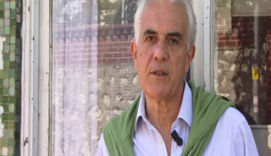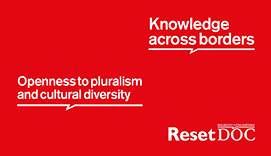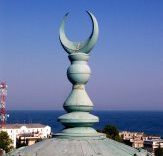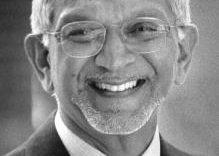Interview: Nina zu Fürstenberg
Film: Anna Fanuele
Full transcript of the video
I think this is an incredibly important moment to think and to talk about the history of the Ottoman Empire, and that is why I am making an effort to put it out there. We are living, in the Middle East, through a transition towards new democratic societies that is coming at the same time as the rise of Islamism and new Islamic political parties, so that the transitions are happening when the people are rethinking the role of Islam within the context of democracy. They are also looking at their past and at all the traditional ways of thinking about Islam and how to use it in modern, contemporary societies. Therefore, they are looking for usable pasts. And I think that the Ottoman Empire is a really interesting usable past, because – even though it was explained and historically described as an Islamic empire – it was really an empire where religion was very much balanced within a lot of dualities that made it possible for it not to be hegemonic. So the example of the Ottoman Empire is one that should be looked at and should be thought about as a possibility.
Now, I am not saying that the Ottoman Empire was a democratic polity, it was not, but it did have features that are useful today. And some of these features are the fact that it was a very plural, tolerant and open kind of imperial society, that did not choose to assimilate its population, it did not choose to homogenize its population, it did not choose to overwhelmingly convert the population to Islam. Instead, it accepted diversity and it decided in some ways to construct a plural society: to construct a plural society where Muslims were together with Christians and Jews and a variety of Muslims; different groups of Muslims were also together and that is one of the features that we need to think about in the present.
One of the most important features of the Ottoman Empire was the legal system and the way in which the legal system created a balance between what was Sharia law and “secular” – in parenthesis because the no concept of secular in a sense – or a ‘non-religious’ law that created a balance between religiosity and a kind of different system. The Ottomans did not really construct a political legitimacy that was fully religious. Their political legitimacy was a lot more fragmented. Part of that was their particular history. I believe that the moment of emergence – when the empire was constructed – the conditions under which it was constructed made an incredible impact on what kind of polity, what kind of cultural setup it became. What I mean by this is that early on, when the Turkish tribes moved from the post-Seljuk space towards the west – into western Anatolia and the Balkans – they were small in numbers, they did not have a demographic advantage and they accommodated, they crossed the frontiers into Byzantine lands and they fought, yes, but they also made alliances with the Christians and they constructed their empire in ways that some have gone as far as calling it a “hybrid” empire, where Christians were as important as Muslims in this project, in this enterprise, where discussions happened between the Sultans and religious leaders of different groups as to what religion was going to contribute to the empire. They also came with their local traditions and they took on also the traditions of the local populations and the customary law of the populations they had conquered. As a result – before even Sharia became important – they created this set of laws that were particular to the place, to the customs of the Turks, and were not about religion, but were about local rule. That created a counterpoint to Sharia. So, by the time the Ottomans became in the Sixteenth century a more Islamic polity – because the conquered a lot of the Middle East and they expanded into Muslim lands – they already had their own laws and regulations, and that created a balance.
What happened was that Sultans codified this customary law into Qanun, which is Sultanic law, and then Sharia worked together with Sultanic law. So you see from the very beginning that is extraordinary is that here we have an empire that is dubbed as an Islamic empire – and we know that according to Islamic rule Sharia should be the only law of the land – and here, in the Sixteenth century, the Ottoman Empire already broke that rule, it already created an alternative set of laws that were counterbalancing. So, the local magistrate, in the Islamic court, who adjudicated every day cases of people who came to him, adjudicated by looking at two sets of laws: the Sharia and the local customary Qanun law. So he had a variation right there in his set of tools, in his ‘toolkit’, in order to choose ‘what is the best way in order to solve that problem’. That created a space, it created a little bit of openness in the system, and it created a sense in which Qanun could influence Sharia and Sharia could influence Qanun. It created flexibility and fluidity in the institutions of the system, and I think the value of the history of the Ottoman Empire is in this multiplicity, in the variation and in the flexibility that it afforded to its subjects, to the people that lived in the empire.
In that sense the Ottoman Empire, both because it had a sort of avant-la-lettre ‘secular’ part to its system, and a religious part, and that both of these were working in some conjunction with each other provides today, for us, an example that it doesn’t need to be “all or none”, it doesn’t need to be one system that is overwhelmingly hegemonic, but that actually multiplicity of systems of law can work together and that there are ways of accommodate between Sharia and secular law.





